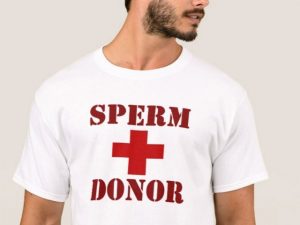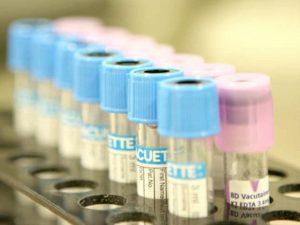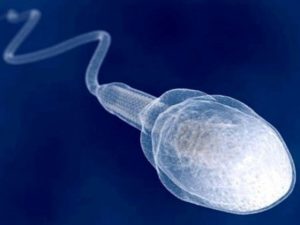In-vitro fertilization (IVF) is no longer a fantastic and unique method of conceiving a child. Childless couples or women who are not married but dream of becoming mothers turn to reproductive specialists, so the demand for donor biomaterial is growing.
It is possible to help people become parents and earn a fair amount of money by donating your own ejaculate. What are the requirements and how to become a sperm donor, how much can I earn?

What is a sperm bank
Donors of sperm donate their semen to a special vault – the sperm bank. There, semen is analyzed, tested, then placed in sterile tubes and frozen in cryochambers using liquid nitrogen.
Storage in this way can last for decades until the bank customer chooses this donor as the father of the child. The test tube is thawed and the woman’s egg is fertilized and, if the embryos are successfully conceived and develop, the embryos are further implanted in the woman.
The bank’s clients do not know the donor’s personal information (name and surname) and do not see his/her photos. They are selected on the basis of such criteria:
- age (at the time of sperm donation);
- nationality;
- children;
- build (height, weight);
- eye, hair, skin color;
- nationality;
- education.
Each sperm bank has its own criteria; some organizations specify donors’ academic degrees, hobbies, food habits, and others.

So how does one become a sperm donor?
The first requirement for a man who decides to sell his ejaculate and help childless couples become parents is an age limit. On average, it is between the ages of 18 and 40, but each reprobank has its own requirements and sometimes they are lowered to 32-35 years old.
One desire to become a donor is not enough, before one donates sperm and receives payment for it as biological material, the guy must go through a preparatory stage. It consists of:
- A comprehensive biological examination confirming his full health;
- Examination by a “male” doctor (andrologist, urologist);
- Psychological counseling.
Sperm donation – a troublesome affair and can last for several months, so you need to be prepared for the fact that some of the tests will have to pass repeatedly, as their shelf life is short.
To assess the quality of sperm, specialists will examine the seminal fluid and question the donor in detail about all the diseases that he suffered, his close and distant relatives.
Men who have relatives with genetic and mental disorders, or themselves suffering from diseases of the reproductive system will automatically receive a refusal of donation. Experts prefer to buy ejaculate from healthy, physically developed guys with attractive appearance.

An important criterion for donation is the health of the germ cells themselves and their resistance to low temperatures. Often there are situations when healthy and active sperm from a donor who meets all the parameters die or lose their main properties during freezing, which precludes his ability to sell the ejaculate.
Medical Examination
A sperm donor must undergo the following tests before entering into an agreement to purchase his seminal fluid:
- General and biochemical blood tests;
- Blood and smears for the detection of urological and sexually transmitted diseases;
- express test for HIV, hepatitis;
- Visual examination by narrow specialists;
- Consultation of a psychologist.
Requires the conclusion of a narcologist and psychiatrist that the man is not registered with them.
If all results correspond to the norm, the final stage will be a spermogram and direct assessment of the quality of the biomaterial. Payment will be made only if it meets these requirements:
- active and healthy sperm – more than 60%;
- the volume of secreted liquid – from 2 to 5 ml;
- number of “live cells” in 1 ml of sperm – not less than 80 ml;
- after thawing the biomaterial preserved at least half of the desired sperm.
The study of donor sperm lasts at least six months. This is due to the fact that viruses such as HIV or hepatitis have an incubation period and are not able to manifest themselves within 6 months. This is why it will be kept frozen for exactly that long, then it will be thawed and finally diagnosed.

Men often ask how much it costs to undergo all the tests and spermograms and whether the price of the examination will not exceed the amount paid for the donation itself. As a rule, if a potential donor has passed the selection stage, cryobanks do the diagnostics for free and of high quality.
So it’s a great way to make money, help people and check your health without spending a penny.
How to donate semen
Sperm donation takes place in a cryobank, in a specially designated room for this purpose. The technical side of the process does not cause men any questions, and the preparation for it – always.
3-5 days before going to the clinic, the donor must:
- refrain from sexual intercourse;
- Not drink alcohol, not smoke;
- eat right;
- Stop excessive physical exercises.
Some donors are recommended on forums to take wet tissues, a magazine with erotic content and upload a corresponding video to the phone to enhance the feelings before the procedure, but it is unnecessary – the rooms for biological material donation have all the conditions for the success of the process, so there is no need to bring additional things.
Conclusion of the contract
After the clinical confirmation of the suitability of the genetic material, a contract is signed where the rights and obligations of the parties are spelled out. The clinic accepts the man as its permanent donor and undertakes to pay him for the seminal fluid and perform free examinations. The donor, on the other hand, waives any rights to the potential child.
What is included in the sperm bank donor profile?
The list of standard parameters includes:
- physical appearance, supported by a photograph from childhood;
- blood type and Rh factor;
- nationality;
- marital status;
- presence and number of children;
- education, profession;
- hobbies, passions.
The list of characteristics varies from clinic to clinic and may include about a hundred parameters of interest to prospective parents.




